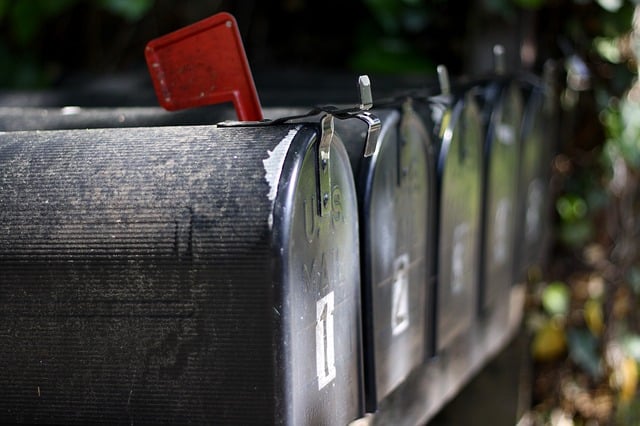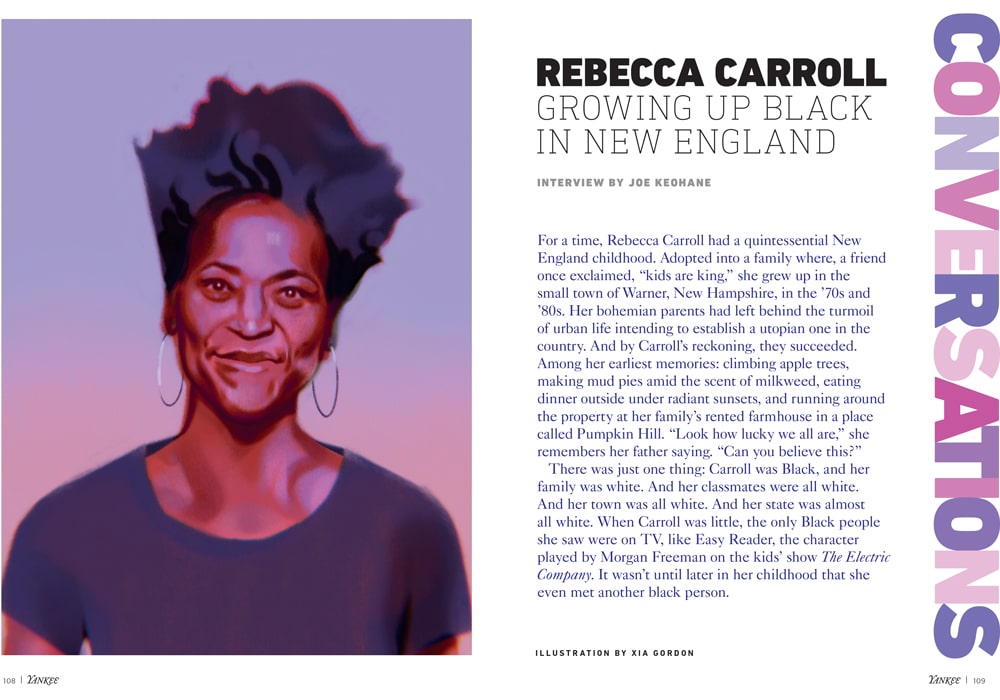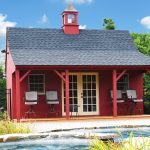Dear Yankee | May/June 2021
Readers respond to their favorite Yankee magazine articles.

Coffee By Design | Portland, Maine
Photo Credit : Katherine KeenanViews of ‘Away’
I was disappointed that you published an article like “From Away” [March/April]. While I don’t agree with the chain that was added to the author’s brother’s driveway, I find the article quite selfish and an insult to year-round residents who have tried hard to keep their communities safe. What happened to her brother is literally the reason why Maine and Vermont instituted mandatory quarantines: Second-home owners overwhelming small rural hospitals! I hope Yankee follows up with an article on rural healthcare workers and the burden that caring for second-home owners has put on their systems.
Chris Leitao Post Mills, Vermont
—
It is a sad commentary on the state of society when compassion for suffering is replaced by fear and self-interest to the extent that a chain would be left across the end of a driveway rather than a meal (or even some water). I am usually proud to call myself a New Englander, but not today.
Lisa Trahan Ames, New York
Recipe for Harmony
I thoroughly enjoyed your articles about pie in the January/February issue. While my equipment may not be up to par with those featured in “The Pie Maker’s Tool Kit,” my love for pie making has been passed down to me from my dad (who makes a killer apple pie—from scratch). So I tried my whisk at the Civil Rights Spiced Sweet Potato Pie from your “Baking Power” article, in honor of Dr. King and what he stood for and continues to stand for.
This pie making and sharing resonated with me after I read your editor’s letter, “Listening, Especially Now.” The dense nature of the sweet potato pie causes one to slow down and really “listen” to all the flavors that are mixed together—the same way that we as humans should slow down and listen to each other and not rush to judgment or talk over one another.
As a Mid-Atlantic expat who took annual family trips each summer to New England as a child, I cannot wait to break open each issue of Yankee that arrives in my Louisiana mailbox. And the next one that arrives, I will enjoy with my coffee… and a slice of pie.
Ryan M. Green Covington, Louisiana
Continuing the Conversation
Our January/February Q&A with Rebecca Carroll, author of Surviving the White Gaze, covered a lot of ground, from her childhood experiences in New Hampshire to larger issues of race in New England. It’s also sparked a lot of thought-provoking reader feedback, some of which we’ve collected here. Join the conversation at newengland.com/rebecca-carroll.

I am an old white guy who grew up in a Connecticut small town. We were nationally diverse, being a 1940s and ’50s mill town. In those days, we thought nothing of calling each other by politically incorrect names.
As I have matured, I am now convinced that the only race is the human race, and we are all so genetically intertwined that there is no separating us. That said, racism exists overtly and politically in our culture, and under the surface too. No matter how hard I try, I lock the car doors going through a Black neighborhood. I think things like, Why can’t they talk English? and Why does she insist on wearing that head covering?
If most of us who are white are honest with ourselves, we have to admit that this unconscious racism exists, even if it does not show on the surface.
Carl A. Strand Jr. Mystic, Connecticut
—
Yankee has always celebrated the values that made New England not only the bedrock of this nation’s founding but also the cradle of its success in becoming the industrial powerhouse that it is today. And yet Ms. Carroll, who enjoyed all the “white privilege” that is currently so in vogue to denigrate, thinks that it’s all racist.
And so, Yankee, you are faced with a pivotal question: Is New England “systemically racist”? If you think so, fold up shop, admit your long role in the charade, and put yourselves out of a job.
If the answer is no—which it obviously is—then don’t be afraid to challenge the woke mob. The memory of the 360,000 Union soldiers, most from New England, who died stamping out slavery should give you some much-needed fortitude.
I suppose in the end it’s a win-win for you, at least in the short term: It seems like there’s money to be made in the “woke industrial complex.” Just promise me you won’t call it “Yankee.”
Pat Hambly via email
—
Growing up in NYC and moving just 250 miles north, to New Boston, New Hampshire, in the early ’70s was quite an eye-opener for me. I had long black hair to my waist and was very tan, and wherever I went I was constantly asked what nationality I was.
A few years later, I moved to Bedford with my French-Polish husband, who was from Manchester. My next-door neighbor told me that everyone on our street wanted to know “what” I could possibly be (other than human being, I suppose). I told her to tell them I was mulatto, but, not understanding what that term meant, she proudly proclaimed one day that she told the neighbors I was “avocado.” As a nursing student, I was once asked by a patient what foreign country I was from; I responded politely, “New York.”
Today, I am a nurse practitioner in a diverse city and no longer hear those comments as frequently. I still return to New Hampshire to visit my old friends, and it still holds a place in my heart in spite of my early years residing there. I do believe it has changed since then—though not as much as we’d like.
Elissa Conte Las Vegas, Nevada
—
Editors’ note: The following letter was written by Rebecca Carroll’s adoptive father, David Carroll, a New Hampshire artist, writer, and naturalist. Readers may know him as the author of such books as The Year of the Turtle and Swampwalker’s Journal, which won the John Burroughs Medal in 2001.
Joe Keohane’s interview with Rebecca Carroll on her memoir and quest for Black identity was thoughtful and revealing. But interviewers have, under most scenarios, only the author’s words to go by. As her adoptive father, I am compelled to speak to the misrepresentation that permeates her narrative.
I will address the opening discussion of her adoption as an exemplar of her treatment of essentially every theme she takes up, in terms of the trivialization and stereotyping that do great injustice to our heartfelt decision to adopt. This was not an afterthought that came after the births of our children. We were committed to the idea of bringing no more than two into the world, the zero-percent-growth model. If we wanted to have a larger family, we would adopt. We registered with the state agencies but were impeded by such considerations as our not owning a house, not belonging to any religion, and falling short of economic guidelines. We also registered with Families for Interracial Adoption, as needs were great and restrictions not so prohibitive. We would welcome a child of any race.
We are portrayed as stereotypes throughout the narrative; in this instance, I am described as “an artist and certainly a male artist very much of his time.” Her adoption was not something I entered into seeking “exotification,” nor was it something I “choreographed” or “curated.”
As the tale goes on, her invasion of privacy regarding us, her adoptive parents, is added as spice. … I can say honestly and frankly that it achieves a crushing weight that my wife, Laurette, and I bear.
David Carroll Warner, New Hampshire
Write to us at Yankee, 1121 Main St., Dublin, NH 03444 or email us at editor@yankeemagazine.com. Letters and comments selected for publication may be edited for length and clarity.
Camping Season

Photo Credit : Indian Hill Press
We exercise our summer rights
To hit the road and see the sights
Like pioneers, prepared to roam
By air-conditioned motor home.
—D.A.W.







